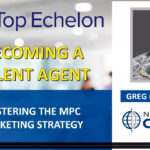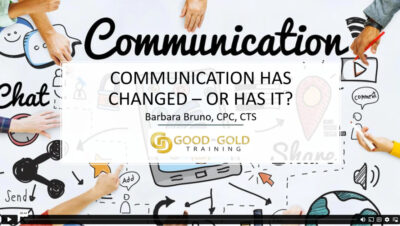Let’s face it: people in general don’t have warm, fuzzy feelings when they think about recruiters. Even those people who have some knowledge of recruiters and have actually worked with them do not hold them in high regard. They might have endured a bad experience with one. Maybe they believe every unsavory thing they’ve heard about recruiters. As a result, they’ve formed an opinion in their mind, one that takes the form of a recruiter stereotype.
So there’s a chance that you’ll have to overcome this recruiter stereotype right off the bat when you’re dealing with candidates and hiring managers. (You’re not starting at square one or even square zero. You’re starting at square negative-one.)
In many cases, you might have to dispel any preconceived notions that candidates and hiring managers have already formed about recruiters in general. Then you can take the steps necessary to build a relationship with that person.
And how do you do that? By providing a positive recruitment experience for them—and this is crucial to the hiring process—regardless of whether or not you get what you want out of the interaction. Striving to provide a positive experience for somebody only when you believe it will benefit you in the short term is the incorrect approach. People will figure out what you’re doing. Consequently, they won’t be intrinsically drawn to you.
Recruiter stereotype blockers
So what needs to be done? How, exactly, do you provide a positive experience for hiring managers and candidates, even if a job order or a resume doesn’t necessarily result from it? Below are six ways that you can overcome a recruiter stereotype:
#1—Be friendly.
This may seem like a no-brainer, but it’s very easy to drop out of friendly mode these days. The hustle and bustle of everyday life has a way of squeezing the friendliness right out of you. But that’s exactly why it’s so important to be friendly. Chances are good that the person with whom you’re dealing already has an abundance of people in their life who aren’t that friendly. That means you’ll stand out—in a good way.
#2—Be enthusiastic.
People are drawn to those who are enthusiastic. Enthusiasm is truly contagious. If you’re excited about something (a new job, opportunity, possible relationship), you’ll pique other people’s interest. This will increase the chances that they’ll become excited about it, as well. There are two ways that people become excited about something. First, they’re hard-wired to be excited about that particular thing. Second, other people are excited about it.
#3—Employ the “no pressure/no problem” approach.
People absolutely, positively don’t want to feel as though somebody is pressuring them into doing something. They want to feel as though they’re the ones making the decisions, even if you’re gently leading them in that direction. Look at it as strategic positioning. Not only that, but people also like to talk with and be around those who don’t pressure them. Once again, they’ll be drawn to you.
#4—Emphasize the benefits for them.
People like to hear good news, and that includes how a situation might benefit them. That doesn’t mean “blowing smoke” or giving them false hope when none actually exists. It means tilting the conversation so that you effectively communicate the good things that could happen if they were to take advantage of an opportunity or form a relationship with you. And if you take the “no pressure” approach while you do it, that’s twice as effective.
#5—Solve their problems.
People have no shortage of problems these days. What they do have is a shortage of solutions. If you brand yourself as somebody who can solve problems, then you’re creating the “mother of all positive experiences.” People aren’t just attracted to problem solvers. They consciously align themselves with problem solvers, and that’s the beginning of a loyal relationship. Whether you’re filling a tough job order or placing a candidate with the company of their dreams, solving problems translates into numerous deposits in the trust bank account.
#6—Listen, listen, listen.
Even if you can’t solve their problems, you can create a positive experience for others just by listening to them talk about their problems. “I can’t sit around talking to people about their problems,” you might be thinking. “I have to make placements and make money. I’m not a psychologist!” Once again, though, people are drawn to those who will take the time to listen to them.
It may not lead to money immediately, but it could eventually. More importantly, it could lead to a wealth of business-building referrals. And quality referrals represent one sure-fire way to make more placements and generate more revenue.
Think about what you do on a daily basis. Do you fit the recruiter stereotype that many people have about those who work in the profession? Or do you believe that you’re the exception to the rule and every unflattering thing that people think about recruiters applies to some other person?








